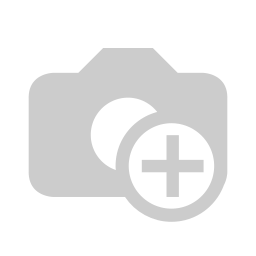Executive Secretary

19th International Symposium of Electrical Engineering
SIE 2021
Abstract
Abstract: The quick development of the cyber-physical systems, the Internet of the Things (IoT), and their deep impact in society in the next years bear to the necessity of preparing specialists in these thematic ones and for they will be changed it the traditional vertical educational paradigms for more horizontal interdisciplinary paradigms. Recent advances in wireless and mobile technologies have the potential to transform learning, both in and beyond, the classroom by engaging students in innovative exploratory learning activities. Experiences have been created across a wide range of subject areas using IoT and the Labs of Things paradigm. In 2017, a serial of courses in support of the doctoral program (PhD.) in Applied Cybernetics began to be taught at the Institute of Cybernetics, Mathematics and Physics (ICIMAF) as a result of the project “APPLIED CYBERNÉTICS Ph.D. Program” of the National Program for Automation of Technological Processes of the Ministry of Science, Technology, and Environment of the Republic of Cuba. Was necessary to update de Lessons about IoT Platform in the Cyber-physical Systems course after 5 years. This paper was fundament the selection of Thingboard like the Open Source IoT Platform and KNIME like Open Source Analytics Framework in a Lab of Things Environment. Also are explained the particularities for the installation and implementation of these platforms.
Resumen
Los avances recientes en tecnologías inalámbricas y móviles tienen el potencial de transformar el aprendizaje mediante la atracción de los estudiantes al aula en actividades innovadoras de aprendizaje exploratorio. Estas posibilidades han sido originadas por el surgimiento del paradigma de la Internet de las Cosas (IoT). Aunque en la actualidad ninguna plataforma de IoT provee el diapasón de funcionalidades necesarias para la enseñanza de los Sistemas Ciber físicos, la disponibilidad y la actualización de las tecnologías de IoT, tanto en el aprendizaje como en la investigación científica muestran un área prometedora para el mundo real. Por ello debemos de disponer de una plataforma de IoT dedicada específicamente a este propósito. En el artículo se propone una metodología para el desarrollo de una plataforma educativa de Internet de las cosas que sea capaz de gestionar todos recursos necesarios durante el proceso de aprendizaje y de investigación a partir del estudio de tres plataformas obtenidas de la literatura, una plataforma genérica, una plataforma específica para el estudio de IoT y una plataforma de Mozilla para JavaScrips. Como resultado se propone el desarrollo de una plataforma para la investigación y la enseñanza a partir de la unión de la plataforma de Mozila con Knime.
About The Speaker

Dr. Armando Plasencia

Researcher at Cybernetics, Mathematics and Physics Institute, Havana, Cuba.
Chief of National Program of Automatics, Robotics and Artificial Intelligence Projects
Also works as a professor at UCI University









